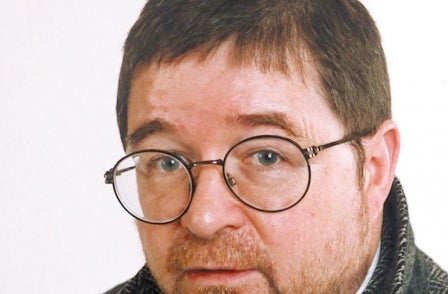
Eight people investigated over the murder of a Northern Ireland journalist more than a decade ago will not be prosecuted because of concerns that evidence from a 'supergrass' will not be sufficient to secure convictions.
Sunday World reporter Martin O'Hagan, 51, was shot dead by loyalists in Lurgan, Co Armagh, in September 2001.
Neil Hyde gave an account to police which could not be independently verified, the prosecution authority said.
DPP Barra McGrory QC said: "The prosecution of any of the accused in this case would depend on the evidence of Neil Hyde.
"Having regard to all the circumstances, it has been concluded that, in the absence of any corroboration, the available evidence is insufficient to provide a reasonable prospect of obtaining a conviction against any individual."
O'Hagan worked for the Sunday World, a Dublin-based tabloid which targets terrorism and organised crime, and built a reputation for covering paramilitary and drugs-related stories.
He was the first journalist believed to have been murdered in the line of work in the history of Northern Ireland's troubles, killed as he returned from the pub in his home town.
A car pulled alongside and a gunman shot him. His wife, Marie, escaped death when he pushed her into a hedge to protect her.
During the police investigation the suspect, Hyde, indicated that he was willing to assist the authorities, and detectives interviewed him at length about his knowledge of the killing and his own involvement.
The Public Prosecution Service (PPS) prosecuted him for a range of offences including conspiring to carry a firearm with intent to wound in connection with the murder, responsibility for which had been claimed by the Red Hand Defenders, a cover name used by the Loyalist Volunteer Force (LVF) and Ulster Defence Association (UDA).
Hyde was jailed for three years last February. Sentencing him, judge Patrick Lynch QC said that if he had not agreed to identify the alleged culprits in O'Hagan's murder and give evidence about the activities of the outlawed LVF, he would have been imprisoned for 18 years.
The PPS is considering whether to refer Hyde back to court so his sentence can be reviewed, and that decision hinges on whether he gave an untruthful account.
Sunday World northern editor Jim McDowell said he was disappointed, annoyed and angry.
"Myself and the staff have worked hard since that black Friday in September 2001 to try to get justice for Martin O'Hagan," he said.
"It now seems, that old adage, while there there may be a law in this country, where is the justice?"
Today's announcement had come as a complete shock to him and the dead man's family, he said, adding: "This will not diminish in any way our resolve to continue to try to get justice for Martin."
McGrory said: "I know this decision will be disappointing to Mr O'Hagan's widow, family, friends and colleagues but the evidence that can be given by an assisting offender must be carefully evaluated and the test for prosecution applied on a case by case basis.
"Every case is different and the question whether the test for prosecution is met can only be determined on the merits of each individual case."
He said his approach had been assisted by detailed consideration given by Mr Justice John Gillen, who highlighted the dangers of convicting on the uncorroborated evidence of an accomplice after an Ulster Volunteer Force (UVF) supergrass trial last year. Twelve of the 13 accused men were acquitted of all charges following one of the longest trials in Northern Ireland's legal history.
Mr Justice Gillen said the supergrasses confused the roles of those they alleged were present.
McGrory insisted he had no reservations about legislation covering the use of supergrasses and said it set off the process of evaluating the evidence of an accomplice.
"There is a legislative framework which is helpful rather than a hindrance," he said.
"The legislation is structured in such a way that there are safeguards built in."
He said the absence of corroboration did not in itself mean no prosecution could be taken but meant the evidence of an accomplice had to be scrutinised to an even greater degree than it might otherwise have been.
"It becomes all the more difficult to prosecute, not necessarily impossible," he added.
"I have to apply as the DPP, in as fair and accurate a way as possible, the test for prosecution, requiring me to act only on evidence which I feel I can confidently bring to court and it will be relied upon and in this case I do not feel that that is the case. In this case the principles of justice are being rigorously applied."
Email pged@pressgazette.co.uk to point out mistakes, provide story tips or send in a letter for publication on our "Letters Page" blog
